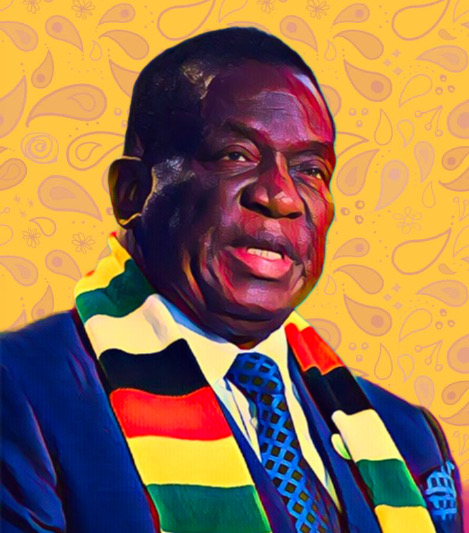KEY POINTS
- Zimbabwean Vice President Constantino Chiwenga has reportedly snubbed key events attended by President Mnangagwa, exposing a growing rift between the two leaders.
- President Mnangagwa recently opted to travel 330 kilometers by road, avoiding the use of a helicopter, sparking concerns over his security.
- Tensions between Mnangagwa and Chiwenga are raising speculation about deeper political divisions within the ruling Zanu-PF party.
A growing divide between Zimbabwe’s President Emmerson Mnangagwa and his deputy Constantino Chiwenga has emerged, a government minister has said.
The two top leaders seem to be on the brink of a public falling out, with Chiwenga missing several events where Mnangagwa was present, thereby intensifying rumors of factionalism in Zimbabwe’s ruling Zanu-PF party.
The split which has been in the rumour mill for some time was evidenced when Chiwenga failed to attend some state functions and there were rumours of a power struggle.
With Zimbabwe experiencing political and economic challenges it can be seen that this split has very dynamics for the leadership and governance of the country.
Mnangagwa shuns helicopter, travels 330km on the road
This has raised eye brows when President Mnangagwa decided to travel 330km by road instead of a helicopter to attend an event in Manicaland province.
This has raised more fears for his security since there are now rumors that he is fearing some individuals in his government.
It is still not clear why Mnangagwa decided to step down, but there are some sources that claim that he had to do that to protect himself.
The president’s decision not to fly and endure a long drive has only contributed to the existing rumors of increasing levels of paranoia and insecurity within the leadership of Zimbabwe.
New Zimbabwe notes that security concerns have emerged as a sensitive factor in the political system of the country with Mnangagwa said to be tight on security.
His refusal to fly could also be an indication of the escalating struggle between factions in Zanu-PF, a party where such battles have been conducted in secret.
The political instability and speculations of power shift
For several years, their relationship has been a subject of political debate in Zimbabwe with Mnangagwa always criticizing Chiwenga. Chiwenga was central in the 2017 military coup that toppled the long-time leader Robert Mugabe and helped Mnangagw to power. But since then, there have been rumors of a power struggle between the two men.
Chiwenga’s absence from some major events involving Mnangagwa has now lent credence to these rumours. Sources close to the vice president have said that the decision to boycott events is a clear sign that he is unhappy with the situation in the ruling party and government.
Some even regarded the split between Mnangagwa and Chiwenga as a microcosm of the unfolding internal tussle in the Zanu-PF party whereby differences factions are still at loggerheads in their bids to capture power.
These divisions if not addressed can lead to the weakening of the party leadership and additional problems for the government as it tries to steer the country through Zimbabwe’s on-going economic problems.
The hope for unity as tensions rise
That is because as political conflict escalates in Zimbabwe many people are worried that these divisions could lead to instability of the country in future.
However, there is still a possibility that the leadership of Zanu-PF will endeavour to find solution and hence minimise on the divisions within the collaborative government.
Most people think that it is possible to encourage Mnangagwa and Chiwenga to work together in order to prevent political crisis in a nation that has suffered from poor economy and leadership for several years.
With the political situation in Zimbabwe still unpredictable, the following months will clarify whether the ruling party will be able to solve internal issues and guarantee stability in the country or not, and if further, the division in a ruling party will deepen leading to other unpleasant consequences.


